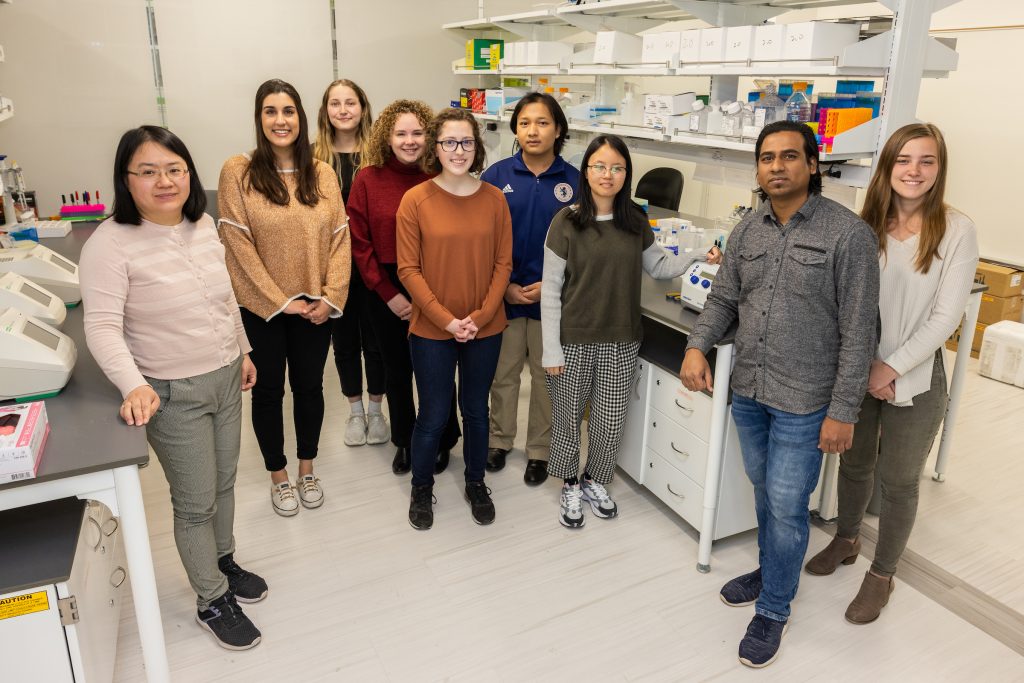Our research laboratory uses a combination of computational and functional genomic, genetic and epigenetic approaches to study the mechanisms underlying genome evolution, epigenetic regulation of transposable elements (TEs), and the effects of TEs on meiotic recombination using maize and soybean as model systems. Ongoing research area includes:
- Comparative genomics and epigenomics in plant genome evolution. We seek to understand the function of TEs in plant evolution, the differentiation and functional consequences of duplicated genes, and co-evolution of small RNAs and their targets, including the fates of microRNAs and protein encoding genes, and the evolution patterns of small interfering RNAs and RNA-directed DNA methylation (RdDM) components.
- Genetic and epigenetic regulation of meiotic recombination in maize. We are currently using classical genetics and computational genomics to dissect genetic and epigenetic regulation of meiotic recombination in maize. We have focused on how RdDM pathway mutants affect the rates of meiotic recombination, and how and why sexes differ in meiotic recombination in maize using the parental lines of maize nested association mapping populations. We are also extending our maize epigenetic work to soybean to compare the conservation and differentiation of the RdDM pathway in these two important crops.
- Genetic dissection of important agronomic traits in maize. We have been using high copy Mutator transposons and Ethyl methanesulfonate (EMS) as mutagens to screen knockout mutants, which show deficiency of important agronomic traits in maize. We are eager to identify the candidate genes and dissect the function of the genes.

